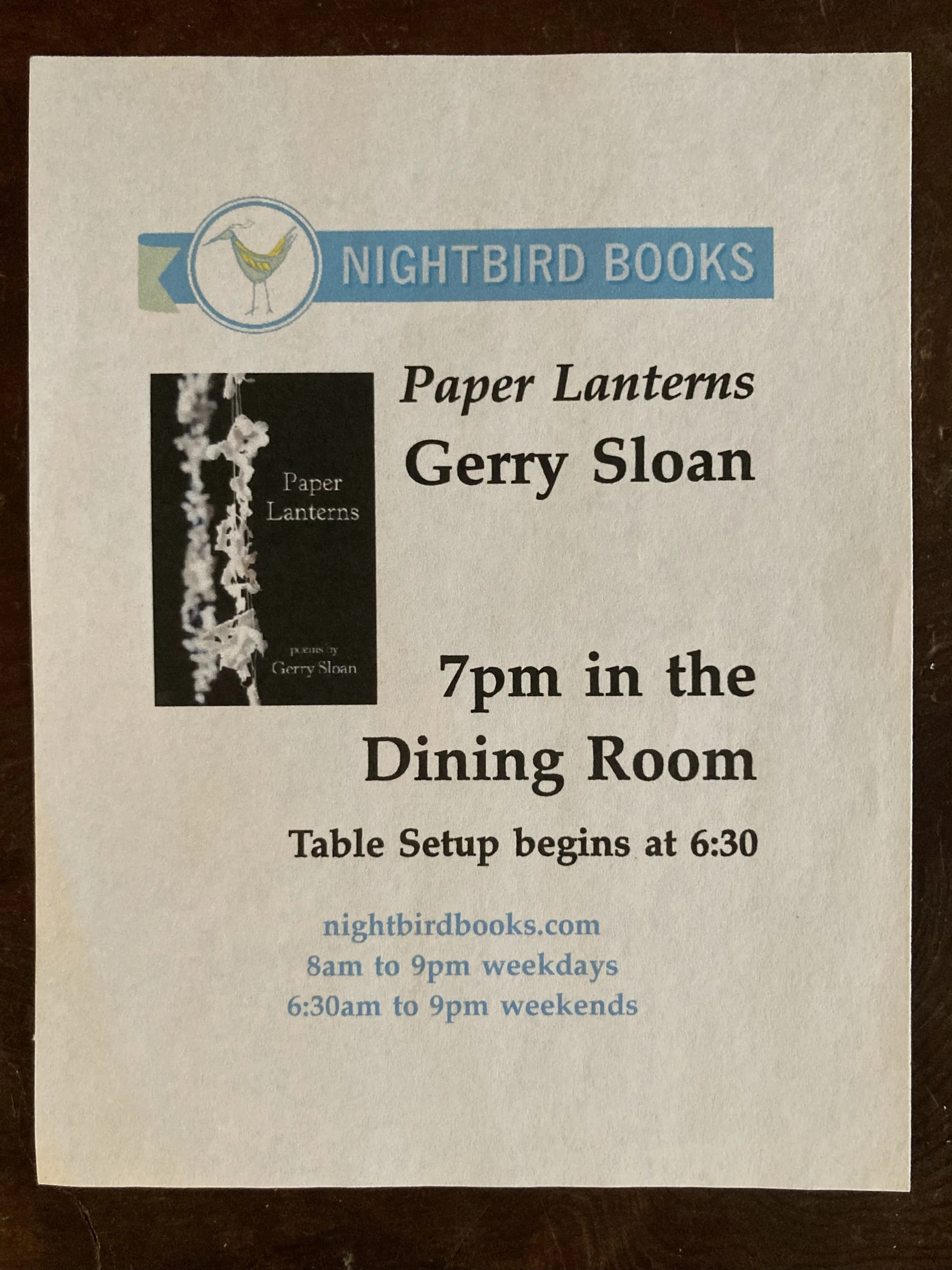Paper Lanterns
Gerry Sloan's poetry "orchestrates a life of observation and attention, of figurative ideas captured in verse, and of love for the things of this world. It is divided into suites linked thematically and delicately by family, politics, history, music, love, and loss. 'I think about the crazy / creatures we've become- / our constant contradictions, / predilection for metaphor- / towns named after conditions / for the lives we share and are.' Gerry Sloan's command of metaphor, tone, and rhythm together with his keen eye for the contradictions of everyday life make for a powerful volume" (quote by Zohreh T. Sullivan). Gerry Sloan is a professor of music at the University of Arkansas in Fayetteville, and his poetry has appeared in such journals as Yarrow, Negative Capability, The Nebraska Review, North Dakota Quarterly, The Christian Science Monitor, and the Anthology of Magazine Verse & Yearbook of American Poetry.
REVIEWS
Probably my favorite book of poetry in ages - and I am an avid poetry reader/writer. Every other page is a gem. I frequently give this book as a gift to other poetry lovers. Everyone has enjoyed it.
—Melisa Spencer
Gerry Sloan's collection Paper Lanterns displays a strong poetic range. While a member of a university community, my friend has served on the music faculty, not literature. His skills in trombone and other low brass play only a rare note among these lines. Much more emphasized is life in the Arkansas Ozarks and his own personal history. Of note for me are his poems "Silence," "American Trash," "Cry of the Turtle" and "Herring Loss." Yes he intends this pun, of quite a few. Many of his verses have pathos, but Sloan does employ his wit, as needed. I am proud to have an autographed copy for my home library.
—Anonymous
Book designed and edited by Liz Lester
“In Paper Lanterns Gerry Sloan doesn’t allow anyone a pass. With a calm and dispassionate eye, Sloan shows us all to be complicit and forces us, sometimes by wit and sometimes by presenting the world in the cold, clean lines of these masterful poems, to admit our hand in the creation of our own predicaments. But by the act of including himself in this, and because he brings us so close to the truth and allows us to witness it as he witnesses it, we are able to find there a kind of redemption, a kind of love as well.”
—DAVID SANDERS, editor of “Poetry News in Review”





